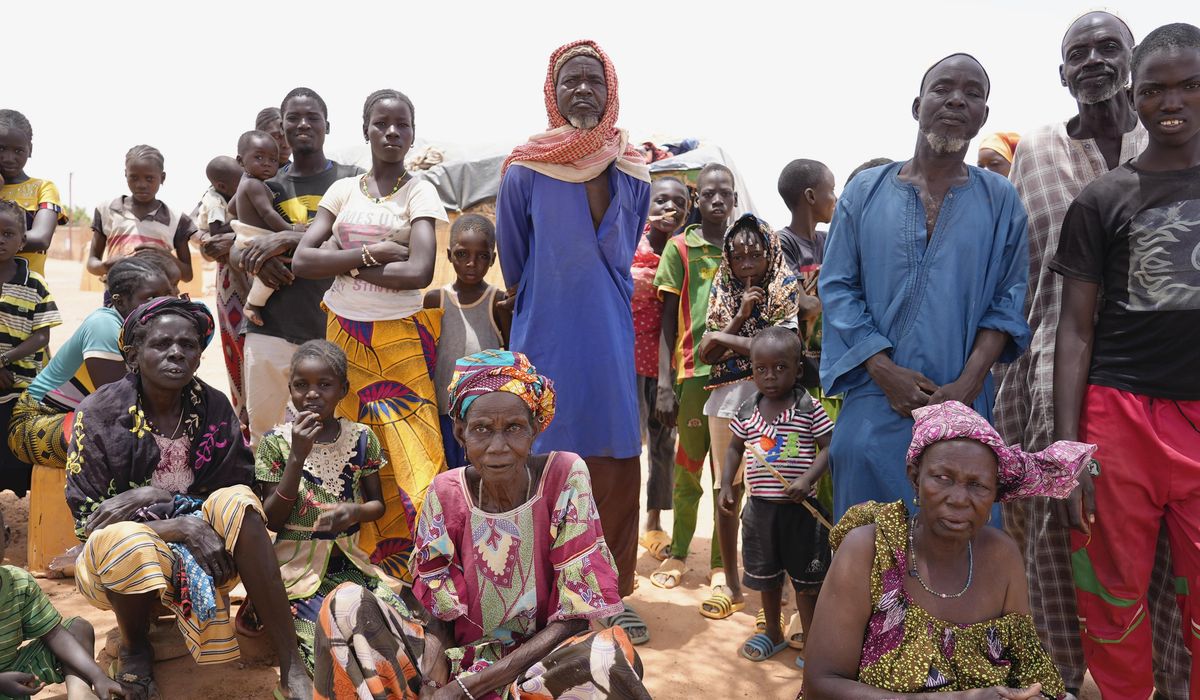
DAKAR, Senegal (AP) — More than 25,000 people could face starvation in conflict-plagued parts of West Africa next year, a United Nations official warned Friday.
Federico Doehnert of the World Food Program said violence and the economic fallout of the COVID-19 pandemic and the war in Ukraine are largely driving the threat to people in Nigeria, Mali and Burkina Faso.
“One of the most striking things is that where we already had issues with severe food insecurity last year, this year we’re seeing a further deterioration” Doehnert said while presenting findings of the latest joint U.N. food security report in Dakar, Senegal.
The cross-border region between Burkina Faso, Mali and Niger is the epicenter of West Africa’s escalating humanitarian crisis, which is compounded by climate change, severe floods and droughts placing more than 10 million people in need of assistance, the U.N. said in a statement this week.
Doehnert said nearly 80% of people facing catastrophic hunger – some 20,000 – are in Burkina Faso’s Sahel region, where jihadis linked to al-Qaida and the Islamic State group have besieged cities and cut off assistance. Residents of the city of Djibo have been blockaded for months, unable to access their farms.
“We only get food when convoys come. Unfortunately, they are not coming on a regular basis,” Sidi Dicko, a resident of Djibo, told The Associated Press by phone. “We pray for God to help us out of this situation.”
Dicko said the little food that arrives gets through with military convoys, which often are attacked on the road. Aid groups need to use helicopters to transport food, which is costly.
Doehnert said that in Mali, where violence has been ongoing for a decade, 1,700 people will face catastrophic levels of hunger.
Displaced people there say they lack jobs and can’t afford food. “Before (the violence), I would go to the market to work and bring back food for my family,” Oumar Barry said, speaking to The Associated Press from a camp in Mopti city where he shelters with his 10 children.
His family eats twice a day now instead of three times, Barry said. .
Other regional nations that aren’t plagued by the same levels of violence also face hunger problems.
In the last quarter of the year, Benin, Ivory Coast, Guinea, Guinea-Bissau, Liberia, Sierra Leone and Togo experienced a 20% increase in food insecurity compared with 2021, according to the food security report. Some 25 million people in Nigeria face moderate or worse food insecurity, the report states.
Converging pressures of economic recession, growing youth populations in need of jobs and the climate crisis leave poor people living from hand to mouth, said Alex de Waal, executive director for the U.S.-based World Peace Foundation. “On top of this, armed conflict and the cynical use of hunger as a weapon pushes communities into outright famine,” he said.
But funding has remained the same, said Benedetta Di Cintio, an official with the U.N.’s Office for the Coordination of Humanitarian Affairs who deals with West Africa.
“This year, we’re at 63 (million) people in need. Next year we are projecting 69 million people and the figures are increasing, but the level of funding is more or less we can say the same in terms of percentage,” she said.
At a U.S.-Africa summit this week, the United States announced $2 billion in emergency aid and medium- to long-term food security assistance for African countries. The U.S. gave $10 million this year to support food security in the Sahel, money that went to Burkina Faso, Mauritania and Chad.
